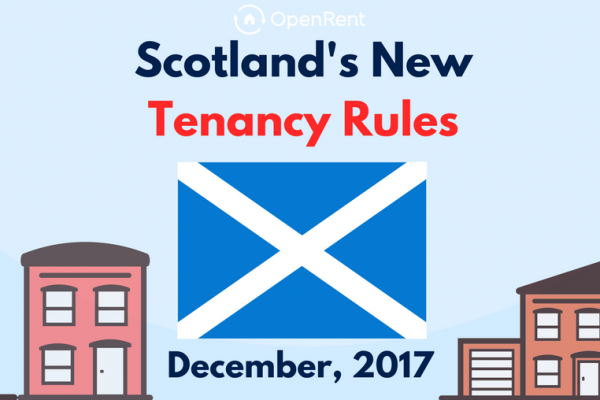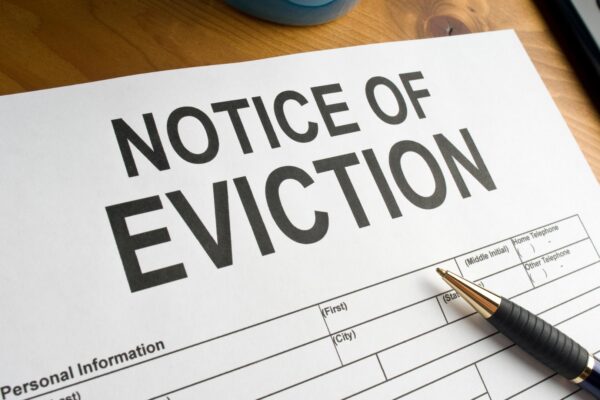If a tenant has fallen into rent arrears – meaning they’ve missed multiple rent payments – there are currently two legal routes a landlord can take to begin the eviction process.
One option is to serve a Section 8 notice, which can be used during the fixed term of the tenancy if the tenant has breached the agreement by failing to pay rent.
The second option is to serve a Section 21 notice, which allows you to seek possession of the property on or after the end of the fixed term, without needing to give a reason.
Although the government intends to abolish Section 21 under the Renters’ Rights Act, the changes haven’t been implemented yet. That means landlords in England can still legally use a Section 21 notice.
- Serving a Section 21 notice for rent arrears
- Serving a Section 8 notice for rent arrears
- What happens when the eviction notice period elapses?
- Is eviction the right option?
- Protect your rental income with Rent Guarantee Insurance
Using Rent Now? Turn on rent collection to stay on top of payments and catch delays early. Find Out More
Serving a Section 21 notice for rent arrears
If you’re a landlord in England and you’re looking to end your tenancy you may opt to serve a Section 21 notice.
A Section 21 notice allows you to end an assured shorthold tenancy on or after the end of the fixed term (unless a break clause applies) without needing to give a reason. That means even if your tenant is behind on rent, you don’t have to build a case or prove fault.
As long as you give at least two months’ notice and follow the correct process, you can ask your tenant to leave simply because you want the property back.
While Section 21 isn’t specifically designed for rent arrears, it can be a cleaner, faster option if you’d prefer not to go down the more formal legal route of a Section 8 notice.
If you’re unsure how to go about it, don’t worry, we’ve got you covered. You can read our guide on serving a Section 21 notice, or use our free and simple notice-serving tool to make sure everything’s done correctly and legally.
Serving a Section 8 for rent arrears
If your tenant is falling behind on rent, you can serve a Section 8 notice at any point during the tenancy – so long as you have a valid legal reason, known as a ground for eviction.
There are 17 different grounds you can rely on when issuing a Section 8 notice, and three of these relate specifically to unpaid rent.
To serve the notice properly, you’ll need to clearly state which ground applies and be able to provide evidence that your tenant meets the legal criteria for eviction under that ground.
Let’s take a look at the three rent arrears grounds and what each one requires.
Ground 8
This is the ground to use if the tenant is very far behind on the rent. You can use it if the tenant is at least:
- 8 weeks’ rent in arrears for weekly/fortnightly tenancies
- 2 months’ rent in arrears for monthly tenancies
- 3 months’ rent in arrears for quarterly/yearly tenancies
The tenant must be in arrears both when the Section 8 notice is served and when the case is heard in court.
Ground 8 is a mandatory ground for eviction. This means that if the conditions are met, the court is required to grant possession of the property to the landlord.
It’s important to note that Ground 8 is the only mandatory ground for rent arrears. The other two grounds, 10 and 11, are discretionary, meaning the court will decide whether or not to grant possession, even if the conditions are met.
You might also be interested in…
- How to Conduct a Property Viewing Online
- When Will Section 21 Be Scrapped?
- 5 Mistakes Tenants Make in Their Property Enquiries (and How to Fix Them)
- What Tenants Need to Know About the Renters’ Rights Act
- 6 Most-Viewed Properties of the Month
Ground 10
This ground can be used when any amount of rent is overdue. Like Ground 8, the arrears must still be outstanding both when you serve the notice and when the case is heard in court.
Keep in mind that this is a discretionary ground. If you serve it for a tenant who is behind on rent for the first time and only owes a small amount, such as £10, you’re unlikely to win the case.
Ground 10 is often used when landlords are seeking a money order rather than an order for possession. A money order requires the tenant to repay the arrears, while an order for possession would require them to leave the property.
Ground 11
This ground is a bit different. It can be used when a tenant consistently fails to pay their rent on time. Unlike Grounds 8 and 10, the tenant doesn’t have to be in arrears on the date the notice is served or on the day of the hearing – although they often will be.
This makes Ground 11 a useful option for landlords, as it prevents tenants from avoiding the eviction process by paying off some arrears just before the hearing in an attempt to delay the proceedings.
Should I use Section 21 or Section 8 for rent arrears? Can I serve both at the same time?
Yes, you can serve both a Section 21 and Section 8 notice at the same time. If the fixed term of the tenancy has ended, giving you the right to serve a Section 21 notice, there’s no reason you can’t serve both notices simultaneously.
This approach can be beneficial because Section 21 notices are generally easier to move forward with, while Section 8 notices have a shorter notice period.
The notice period for Section 8 grounds is just 2 weeks, while Section 21 notices require 2 months’ notice.
What happens when the eviction notice period elapses?
Ideally, when your tenant receives the notice, you will have agreed on a suitable date within the notice period for them to leave the property and pay the rent arrears. By the end of the notice period, they should have moved out and settled their debt.
If this doesn’t happen, then once the notice period has passed, you’ll need to take further action. The next steps depend on:
- whether you’re using a Section 8 or Section 21 eviction notice
- whether you’re seeking possession of the property, or also pursuing rent arrears
If your tenant hasn’t vacated the property by the end of the notice period, your next move will be to apply for a possession order through the courts.
Save time and money by reaching the right tenants without the hassle of hidden costs. Create Your Advert Today
Is eviction the right option?
As a landlord, your priority is ensuring your property remains a reliable source of income. If your tenant is in rent arrears and has failed to make the necessary payments or respond to reminders, eviction may seem like the only option to recover your rent and regain possession of your property.
While eviction can be a lengthy and costly process, sometimes it’s unavoidable when all other efforts to resolve the situation have failed.
That said, it’s always worth considering other avenues first, like negotiating a payment plan, before diving into eviction. However, if these options don’t work and your tenant continues to fall behind on rent, you have every right to consider eviction as a means of protecting your property and your income.
Protect your rental income with Rent Guarantee Insurance
As a landlord, dealing with unpaid rent and the costs associated with eviction can be stressful. Rent Guarantee Insurance can help mitigate some of the financial challenges that come with these situations.
In the event that eviction becomes necessary, this type of cover can help with unpaid rent and certain legal costs associated with the eviction process, offering you peace of mind and financial protection during difficult times.
Rather than leaving you to face the process alone, Rent Guarantee Insurance can give you added confidence in managing your property – knowing that you have some protection in place if things go wrong.



